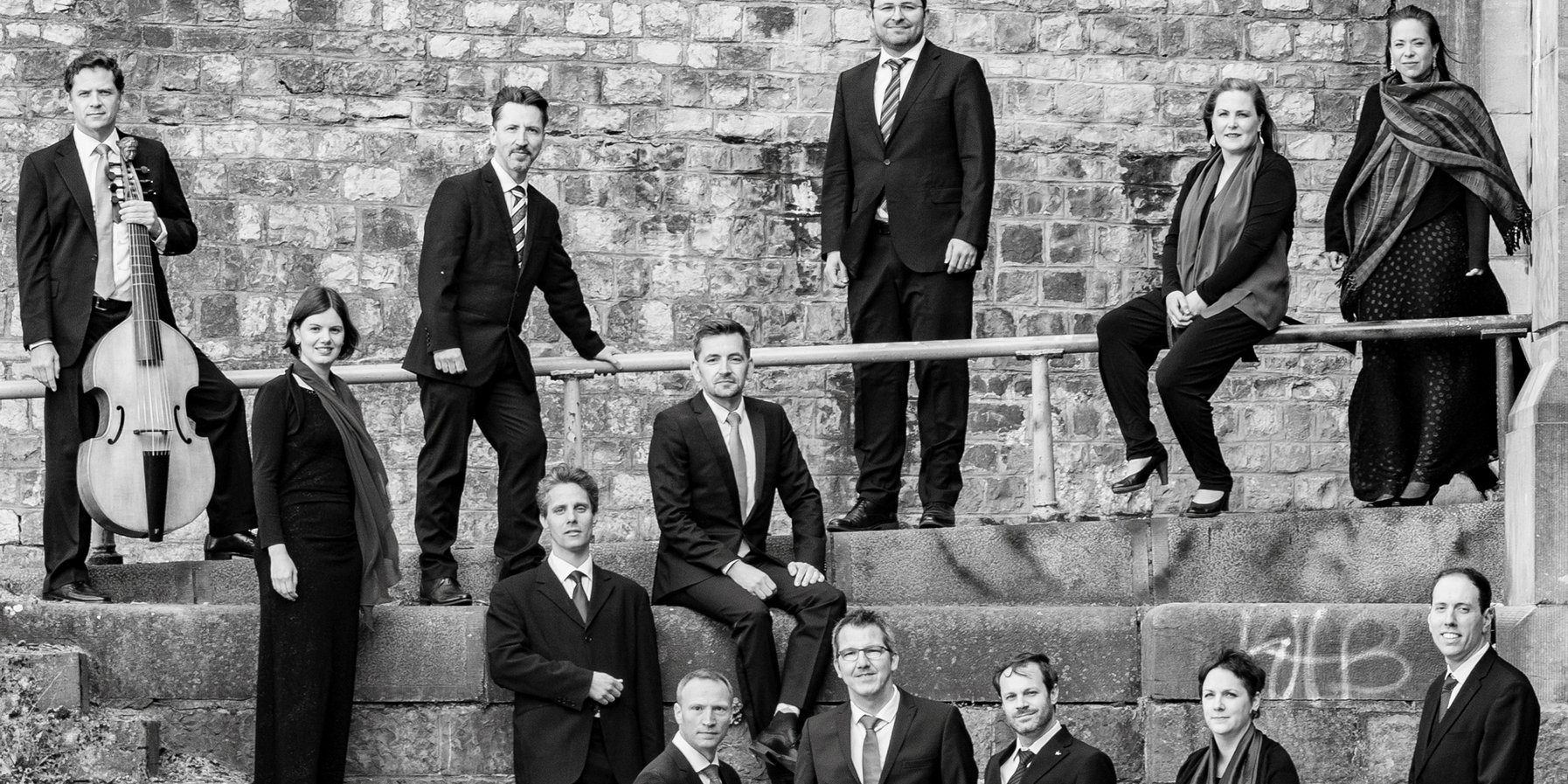»Oh Haupt voll Blut und Wunden« (O head full of blood and wounds) – this memorable and moving chorale is the central focus of Bach's St Matthew Passion. The musical setting of the Passion story is one of the most important of all sacred works. Johann Sebastian Bach's mammoth Baroque score is performed every Good Friday in countless locations: in towns and in the country, by amateurs and professionals alike: the enthusiasm for the music far outweighs any inhibitions about the oratorio's length and the huge ensemble required. And Bach was certainly thinking big: a performance calls for two choirs and two orchestras as well as a line-up of soloists. At the Elbphilharmonie, two of today's top Baroque ensembles can be heard, namely the Freiburg Baroque Orchestra and Vox Luminis. The performance will be conducted by Vox Luminis founder Lionel Meunier, who is internationally known for his vivid and historically accurate interpretations of Baroque music.
Performers
Freiburger Barockorchester
Vox Luminis
Hamburger Knabenchor
Zsuzsi Tóth Sopran
Gwendoline Blondeel Sopran
Alexander Chance Alt
William Shelton Countertenor
Raphael Höhn Evangelist
Florian Sievers Tenor
Raffaele Giordani Tenor
Sebastian Myrus Jesus
Felix Schwandtke Bass
Leitung Lionel Meunier
Programme
Johann Sebastian Bach (1685–1750)
St Matthew Passion BWV 244 (1727)
About the music :A timeless classic that had a bumpy start: Bach’s »St Matthew Passion«
Why is anyone still interested in the Passion story nowadays? A third of the German population doesn’t go to church at all any more, while just a few per cent may go at Christmas. And the bloody story of the Crucifixion, with all its suffering and atonement, all its regret and punishment, doesn’t really seem to fit into the present day. Nonetheless, Johann Sebastian Bach’s St Matthew Passion is an integral part of our culture; it is performed every year in numerous churches large and small by amateurs and professionals alike, and there is never any trouble filling the seats.
In the beginning silence reigned
That was not always the case. On the contrary: the work’s first performance on 11 April 1727 was rewarded with – silence. No review has survived, no report from the Leipzig City Council (Bach’s employer at the time); there is no mention in any surviving letter or personal note. And as if this wasn’t bad enough: after just four performances during the composer’s lifetime, the Passion sank into oblivion. It took a whole century for it to be rediscovered – by an enterprising 20-year-old who had made it his mission to help the forgotten Thomaskantor achieve new fame. The young man’s name was Felix Mendelssohn.
The performance of a heavily-cut version of the St Matthew Passion in 1829 by the Berliner Sing-Akademie, with Mendelssohn conducting, did more than just return the laurels that the work deserved: it triggered a full-scale Bach revival which has continued to this day. But how did this transformation come about? What did Mendelssohn’s contemporaries hear in the St Matthew Passion? What do we hear in it today, that escaped the notice of congregations in Bach’s time?

An opera in church?
»God forbid! It’s as if one were listening to an opéra-comédie!« complained one noblewoman after attending the second performance of the St Matthew Passion in 1729. And she didn’t mean it as a compliment. Opera music was not welcome in church in those days. The employment contract that Bach signed in Leipzig even required him not to write music for church use that was too operatic in style. Notwithstanding, the noblewoman quoted above actually hit the nail squarely on the head: the score of the St Matthew Passion has an immense dramatic impact.

With two choirs, two orchestras and a running time of a good two-and-a-half hours, the work goes well beyond what was usual at the time – and Bach took the opportunity to bring in all the expression he had at his disposal. The opening chorus »Kommt, ihr Töchter, helft mir klagen« is already quite overwhelming, and unique in the oratorio repertoire. It places the listener directly in the midst of the Passion story with its singing set out as a dialogue. And over this choral dialogue floats a third group of voices, sopranos only, with the verse »O Lamm Gottes unschuldig«. This vocal line seems to come down from heaven, and gives the listener the key to understanding the work at the outset: Yes, dreadful things are happening around us, but they contain a comforting message that concerns us all.
Music of the future
As the story unfolds, Bach sticks to his plan of depicting the events of the Passion on two levels. On the plot level, the evangelist narrates the events as recorded in the Bible. He is supported by soloists and the chorus in the roles of, for example, Pontius Pilate, St Peter, the disciples or the people. But in the arias and chorales, Bach interrupts the narration of the facts to reflect on the story on a more general level: What does it mean for today’s listeners? For each and every individual?
It’s true that all this wasn’t new. Earlier oratorios had already featured alternating narrative and reflective levels. But no composer before Bach managed to imbue this style of narrative with such intensity and dramatic impact. So maybe music history did actually have to wait for the emergence of Romanticism, when Mendelssohn was born, to really appreciate the St Matthew Passion. Bach himself, incidentally, was certainly aware of the significance of the work: he wrote out the score with particular care, and to this day it remains the finest and most precious autograph manuscript from his pen.

Text: Juliane Weigel-Krämer, last updated: 22 Mar 2021
Translation: Clive Williams










